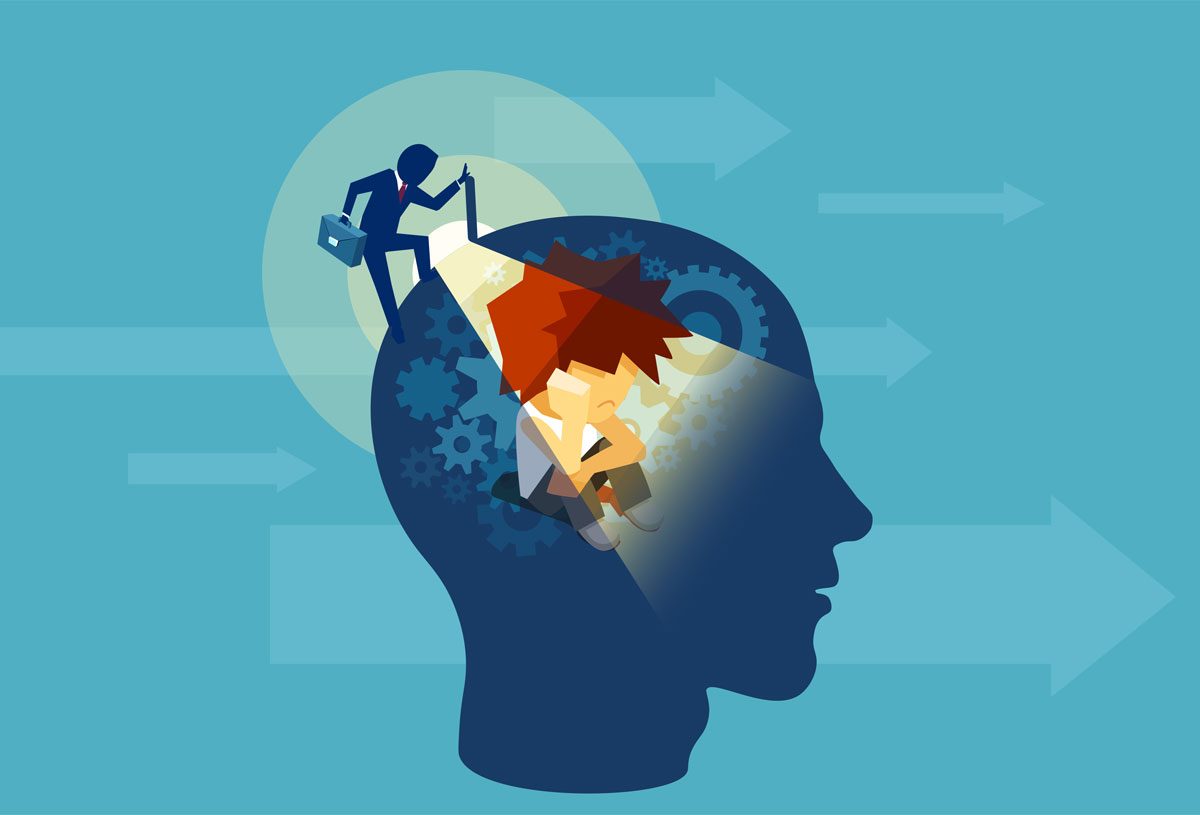There are many traits you can develop during addiction treatment that will serve you well in recovery and in life. These include patience, optimism, tenacity, courage, and mindfulness. One you might not think of is compassion. Compassion is an underrated trait that leads to many great benefits for you and the people around you. Here are some of the biggest ways compassion can improve your recovery.
Rebuilding Trust with Family and Friends
Addiction puts a tremendous strain on relationships, and some relationships it destroys forever. People struggling with addiction often do things they would otherwise never do, including lying, stealing, behaving violently or recklessly, and being generally unreliable. This behavior is hardest on the people they’re closest to because those people stay around the longest and care the most.
When people enter recovery, they often feel remorse for their earlier behavior, but they also feel frustrated their friends and family don’t trust them despite their sincere efforts to recover. This is where compassion is important. Being able to put yourself in their place and caring about what they’re going through helps you understand that they want to trust you but it takes time. Caring about their suffering makes it easier to be patient and give them space to heal too.
Building Connections with Other in Recovery
As much as your family and friends may support you in recovery, they probably don’t completely understand what you’ve been through. For many people recovering from addiction, it helps to have the support of people who do understand, especially early on. Studies have shown that the most effective part of 12-step programs is that they provide a strong sober network. People who are more involved with and connected to their groups tend to stay sober longer.
This isn’t always easy. Many people in recovery have problems they’re still working through, including stress, frustration, depression, anxiety, and anger. People going through a hard time aren’t always pleasant to be around, but they need your support. Having compassion for other people in recovery helps you be supportive when it matters most. A strong sober network is forged by this kind of mutual support.
Forgiving Yourself for Past Behavior
We take for granted that compassion for others is a good thing, but many people fail to have compassion for themselves. Not only do they neglect to have compassion for themselves, but they feel like they don’t deserve it. If you’ve done some things you’re not proud of, you might feel like forgiving yourself lets you off the hook when you deserve to suffer. While having remorse for destructive behavior is a good thing, continually beating yourself up over all the horrible things you’ve done is counterproductive. It keeps you stuck in the past, wallowing in shame rather than trying to improve.
Having compassion for yourself allows you to move forward. Since it’s often much easier to have compassion for others, it might help to imagine your earlier self as someone else. Think of the pain and hopelessness of addiction and have compassion for the person experiencing that. Imagine how you would feel if a close friend were going through the same thing and apply that compassion to your earlier self.
Helping Out Your Future Self
Studies about self-control in recent years have shown us something surprising: self-control is closely linked to empathy. Whenever you have to make a choice between immediate gratification and a greater long-term reward, you are essentially choosing sides between the present you and the future you. Since you are the present you, you often choose the immediate gratification, to the detriment of your future self. The ability to put yourself in your own shoes a week, a month, a year, or ten years later greatly increases your ability to forgo immediate gratification for the benefit of your future self.
Relying on willpower to fight addiction is not a great plan. If you keep putting yourself in difficult situations, you will eventually fail. The better place to put your effort is in doing the things that keep you sober. This is where compassion for your future self is important. It helps you go to bed at a reasonable time even though you’d rather stay up watching television. It helps you go to a 12-step meeting when you’d rather do just about anything else. If you can see every decision as a small act of compassion for your future self, it’s much easier to create a better future for yourself.
Greater Sense of Wellbeing
Studies show that having more compassion leads to a greater sense of wellbeing. Self-compassion is particularly important. Self-compassion, as with compassion for your past and future selves, means accepting and supporting yourself rather than condemning and criticizing yourself. It shouldn’t come as a surprise that people are happier when they aren’t constantly attacking and berating themselves. What may be more surprising is that self-compassion also improves your relationships to other people too. Having compassion for yourself allows you to be more open and supportive with others, which they tend to appreciate.
More feelings of compassion also lead to more positive feelings in general. Several studies have been conducted on the Buddhist practice of loving-kindness meditation, which is specifically intended to increase compassion. The studies have all found that loving-kindness meditation increases feelings of compassion, and also increases feelings of joy, love, contentment, gratitude, hope, social connection, and sense of purpose. Another significant benefit–perhaps for many people the most significant benefit–is that it also reduces feelings of depression.
If you or someone you love is struggling with addiction or mental illness, The Dawn Medical Rehab and Wellness center can help. We are one of Thailand’s most respected addiction treatment and wellness centers. We use cutting-edge treatment modalities to provide personalized care to treat addiction, depression, anxiety, bipolar disorder, personality disorders, PTSD, and executive burnout. See our contact page to reach us by phone or email.
Related Posts
 Why is Self-Esteem Important for Mental Health in 2023?
It is impossible to overstate the importance of self-esteem and mental health in achieving personal goals and strengthening the relationship you have with yourself and others. This year, commit to...
Why is Self-Esteem Important for Mental Health in 2023?
It is impossible to overstate the importance of self-esteem and mental health in achieving personal goals and strengthening the relationship you have with yourself and others. This year, commit to...
 All You Need is Self-Love: Why Loving Yourself is a Cornerstone of Recovery
Finding early recovery to be a difficult, even painful period? Many people enter recovery with a low sense of self-esteem that becomes more apparent to them without the numbing effects...
All You Need is Self-Love: Why Loving Yourself is a Cornerstone of Recovery
Finding early recovery to be a difficult, even painful period? Many people enter recovery with a low sense of self-esteem that becomes more apparent to them without the numbing effects...
 Which Mental Health Condition has the Clearest Connection to Childhood Trauma?
The legacies of childhood abuse and neglect can be devastating. If you’ve survived trauma as a child, you may now find yourself struggling with borderline personality disorder. However, specialised treatment...
Which Mental Health Condition has the Clearest Connection to Childhood Trauma?
The legacies of childhood abuse and neglect can be devastating. If you’ve survived trauma as a child, you may now find yourself struggling with borderline personality disorder. However, specialised treatment...
 The Lowdown: What Happens at an Alcohol and Drug Rehab Centre?
The destructive cycle of addiction is notoriously hard to break but it is possible. Checking in to an alcohol and drug rehab centre is a powerful first step to overcoming addiction and embarking on...
The Lowdown: What Happens at an Alcohol and Drug Rehab Centre?
The destructive cycle of addiction is notoriously hard to break but it is possible. Checking in to an alcohol and drug rehab centre is a powerful first step to overcoming addiction and embarking on...





